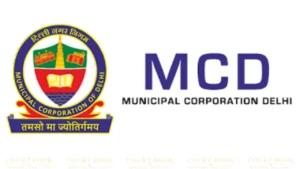The Delhi High Court has directed the competent authority of the Union Government to take necessary steps to ensure that information under the Right to Information (RTI) Act, 2005 is provided in the mode requested by the applicant, including modern electronic methods like emails and pendrives. This move is aimed at aligning the RTI framework with technological advancements and user preferences while ensuring data security.
A division bench comprising Chief Justice DK Upadhyaya and Justice Tushar Rao Gedela issued the direction while disposing of a Public Interest Litigation (PIL) filed by Aditya Chauhan and another petitioner. The petition raised concerns about public information officers (PIOs) not providing RTI information through commonly used digital modes despite the RTI Act allowing it.
Read also:- Kerala High Court Calls for Strict Anti-Ragging Law After Student Suicide at KVASU
“We are convinced that ordinarily the information sought under the RTI Act shall be provided to the information seeker in the mode it is sought. However, the same is subject to two conditions as provided under Section 4(4) and 7(9) of RTI Act,”
— Delhi High Court
The petitioners contended that although the RTI Act permits obtaining information through electronic means, the authorities are reluctant to use modes such as emails and pendrives. It was also highlighted that the RTI Rules of 2012 lack a clear framework to implement such electronic dissemination of information.
Read also:- Delhi High Court Emphasizes Need for Psychological Evaluation in Premature Release of Life Convicts
The counsel for the Union Government referred to Section 2(j) of the RTI Act, which defines the term "right to information" to include various formats like floppies, discs, video cassettes, and also "any other electronic mode" where the data is stored digitally.
The Court, after examining the statutory provisions, emphasized that:
“The term ‘right to information’ includes the right to obtain information in other electronic modes as well,”
— Delhi High Court
The bench also noted Section 4(4), which mandates that information dissemination should consider the most effective method of communication. Furthermore, Section 7(9) provides that information should generally be given in the form it is requested unless doing so would significantly burden the public authority or compromise the safety or preservation of the record.
“The RTI Rules do not address a situation where the RTI information is sought in a particular mode such as email or pendrive,”
— Delhi High Court
Taking all provisions into account, the Court held that RTI information must be made available in modern formats as per the seeker’s request, with safeguards in place. It directed the competent authority of the Government of India to issue directions or frame rules to establish a framework for this within three months.
“An adequate framework may be put in place to make the information seeker realize the true purport of the rights under RTI Act, 2005,”
— Delhi High Court
Title: Aditya Chauhan & Anr v. Union of India & Anr















